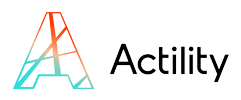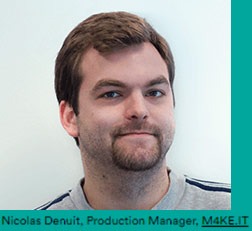

There is a gap between heating oil users and their suppliers. FULLUP aims to fill that gap. We are using new technology to make fuel tanks smart.
Catherine de Viron, Managing Partner
Today in Belgium, 40% of homes are heated by oil. Homes have a fuel tank somewhere on the property, often buried underground, placed above ground near the house, or in a basement. Managing oil consumption is difficult, and knowing exactly when the tank needs refilling is a challenge. Prices are higher in winter, leaving the furnace level low in summer can increase cost… and everyone fears running out!
To prevent this, most owners will have the tank filled up at the end of autumn, thinking that it is better to be safe than sorry. Fuel suppliers face peak demand during the month of November, as most orders are placed at the first signs of cold weather. Lack of real data and limited communication with the fuel supplier can result in an additional 15 to 30 % spend for homeowners. And the same is true for factories or buildings that require fuel: their costs soar up to 70% thanks to poor demand management. Peaks in demand for homes and commercial buildings is not only damaging to the environment, but also it is a waste of money for everyone.
FULLUP developed a sensor to be mounted directly into the tank to collect crucial missing information: How much fuel is consumed, when, and how? With accurate and comprehensive data, homeowners were able to adapt their behavior and optimize their consumption. But FULLUP ran into several few hurdles along the way. Once sensors were placed in consumers’ tanks, some could not connect to the network and collect data because of their underground location. The sensors were silent and useless. Proximus, the Belgian telecoms operator, helped FULLUP overcome this problem by using its LoRaWAN nationwide network and associated connectivity services. This new Low Power Wide Area (LPWA) networkhas a range of up to 15 kilometers to connect sensors to network gateways, and can deliver where others fail to do so. LoRa is able to connect with any sensors, even when buried underground, or secreted in basements. Since most fuel tanks are not powered, long lasting LoRa sensors (10+ years) are the most adapted choice. Once the sensors are connected, using the Actility ThingPark platform, the data is processed and transmitted in real time to the FULLUP application.
Thanks to the solution delivered by Proximus in partnership with Actility, the FULLUP application is now able to operate at full capacity. It will allow the owner to track the level of fuel in their tank on their smartphone. The connected sensors detect anomalies in consumption and will alert the owner immediately if any leak is detected. The data collected also enables better management of consumption. Trials clearly show that customer behavior changes as their awareness develops thanks to their smartphone app. Simple actions such as lowering the room temperature when the house is empty, controlled using the FULLUP application on the smartphone, and turning it back up when returning home, can reduce consumption by 20% in individual homes.
Larger consumers, such as buildings and factories, partner directly with the suppliers who are responsible for their furnaces. For suppliers, the FULLUP application is incredibly powerful. Placing sensors in all their tanks offers them complete visibility and accessibility. The ThingPark platform enables supervision of the infrastructure, the connectivity and the status of each tank. Suppliers are able to plan optimized and efficient filling schedules, with optimized vehicle routing, reducing costs. The application is a powerful source of information for building managers, who are able to manage consumption easily, and put in place the necessary measure to lower costs.
The results of the application are clearly positive: consumers as well as suppliers are pleased with the FULLUP solution’s benefits… So much so, that more gateways are being installed in the first quarter of 2017 to support more sensors in more homes.
Learn more about LoRaWAN capabilities to help you connect remote/hardly accessible appliances for your customers!

© 2024 Actility’s All Rights Reserved